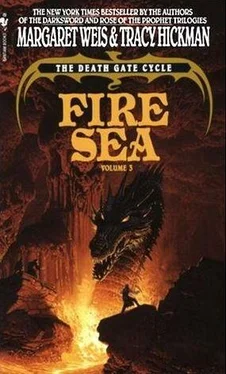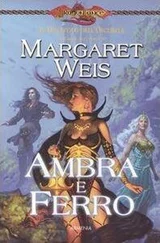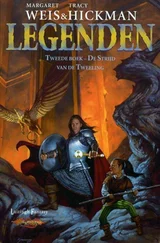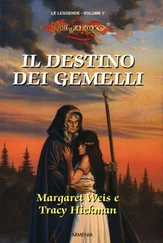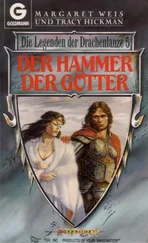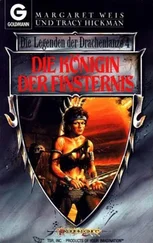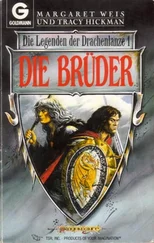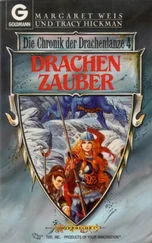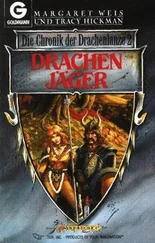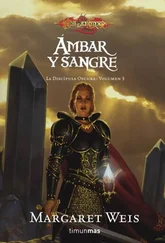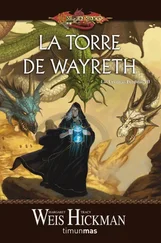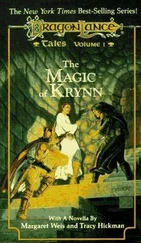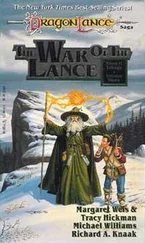Margaret Weis - Fire Sea
Здесь есть возможность читать онлайн «Margaret Weis - Fire Sea» весь текст электронной книги совершенно бесплатно (целиком полную версию без сокращений). В некоторых случаях можно слушать аудио, скачать через торрент в формате fb2 и присутствует краткое содержание. Жанр: Фэнтези, на английском языке. Описание произведения, (предисловие) а так же отзывы посетителей доступны на портале библиотеки ЛибКат.
- Название:Fire Sea
- Автор:
- Жанр:
- Год:неизвестен
- ISBN:нет данных
- Рейтинг книги:4 / 5. Голосов: 1
-
Избранное:Добавить в избранное
- Отзывы:
-
Ваша оценка:
- 80
- 1
- 2
- 3
- 4
- 5
Fire Sea: краткое содержание, описание и аннотация
Предлагаем к чтению аннотацию, описание, краткое содержание или предисловие (зависит от того, что написал сам автор книги «Fire Sea»). Если вы не нашли необходимую информацию о книге — напишите в комментариях, мы постараемся отыскать её.
Fire Sea — читать онлайн бесплатно полную книгу (весь текст) целиком
Ниже представлен текст книги, разбитый по страницам. Система сохранения места последней прочитанной страницы, позволяет с удобством читать онлайн бесплатно книгу «Fire Sea», без необходимости каждый раз заново искать на чём Вы остановились. Поставьте закладку, и сможете в любой момент перейти на страницу, на которой закончили чтение.
Интервал:
Закладка:
Impulsively, Edmund pulled off his fur gloves, reached out his hand to touch the rock, to run his fingers along the sigla-inscribed stone. He paused, however, suddenly fearful of the magic, afraid of being burned or shocked. He looked questioningly at me.
“It won’t hurt you,” I said, with a shrug. “It lost, long ago, the power to hurt.”
“Just as it lost the power to help,” Edmund added, but he said the words to himself.
Gingerly, he ran his fingertips over the chill stone. Hesitantly, almost reverently, he traced the pattern of the runes whose meaning and magic are now long forgotten. He lifted his head, looked up and up as far as the torchlight shone on the glistening rock. The sigla extend upward into the darkness and beyond.
The column rises to the ceiling of the cavern,” I commented, thinking it best to speak in the crisp, concise voice of the teacher, as I used to speak to him in the happy days when we were together in the classroom. “Presumably, it extends up through the ceiling to the region of the Celestial Sea. And every bit of it is covered in these runes, that you see here.
“It is frustrating”—I could not help frowning—“but most of these sigla, individually, I know, I understand. The rune’s power lies not in the individual sigil, however, but in the combination of sigla. It is that combination that is beyond my ability to comprehend. I copied down the patterns, took them back with me to the library, and spent many hours studying them with the help of the ancient texts.
“But,” I continued, speaking so softly that only Edmund could hear my words, “it was like trying to unravel a huge ball made up of myriad tiny threads. A single thread ran smoothly through my fingers. I followed it and it led me to a knot. Patiently I worked, separating one thread from another and then another and then another until my mind ached from the strain. I untangled one knot, only to find, beneath it, another. And by the time I unraveled that one, I had lost hold of the first single thread. And there are millions of knots,” I said, looking upward, sighing, “Millions.” The king turned away from the pillar abruptly, his face drawn arid darkly lined in the torchlight. He had not spoken a word during the time we’d stood beneath the colossus. It occurred to me, then, that he had not spoken since we left the city gates. He walked off, back to the path. The people lifted their children to their shoulders and started on their way. Most of the soldiers followed after the people, taking the light with them. One only remained near myself the prince.
Edmund stood before the pillar, pulling on his gloves. I waited for him, sensing that he wanted to talk to me in private.
“These same runes, or others like them, must guard Death’s Gate,” he said in a low voice, when he was certain no one could overhear. The soldier had backed off, out of courtesy. “Even if we did find it, we could not hope to enter.”
My heart beat faster. At last, he was beginning to accept the idea!
“Recall the prophecy, Edmund,” was all I said.
I didn’t want to appear too eager or press the issue too closely. It is best, with Edmund, to let him turn matters over in his mind, make his own decisions. I learned that when he was a boy in school. Suggest, introduce, recommend. Never insist, never force him. Try to do so, and he becomes hard and cold as this cavern wall that is now, as I write, poking me painfully in the back.
“Prophecy!” he repeated irritably. “Words spoken centuries ago! If they ever do come true, which I must admit I doubt, why should they come to fulfillment in our lifetime?”
“Because, My Prince,” I told him, “I do not think that, after our lifetime, there will be any others.”
The answer shocked him, as I intended. He stared at me, appalled, said nothing more. Glancing a last time at the colossus, he turned away and hastened to catch up with his father. I knew my words troubled him. I saw his expression, brooding and thoughtful, his shoulders bent.
Edmund, Edmund! How I love you and how it breaks my heart to thrust this terrible burden on you. I look up from my work and watch you walking among the people, making certain they are as comfortable as they can possibly be. I know that you are exhausted, but you will not lie down to sleep until every one of your people is sleeping.
You have not eaten all cycle. I saw you give your ration of food to the old woman who nursed you when you were a babe. You tried to keep the deed hidden, secret. But I saw. I know. And your people are beginning to know, as well, Edmund. By the end of this journey, they will come to understand and appreciate a true king.
But, I digress. I must conclude this quickly. My fingers are cramped with the cold and, despite my best efforts, a thin layer of ice is starting to form across the top of the ink jar.
That colossus of which I wrote marks the border of Kairn Telest. We continued traveling until cycle’s end, when we finally arrived at our destination. I searched for and found the entrance to the tunnel that was marked on one of the ancient maps, a tunnel that bores through the kairn wall. I knew it was the right tunnel, because, on entering it, I discovered that its floor sloped gently downward.
“This tunnel,” I announced, pointing to the deep darkness inside, “will lead us to regions far below our own kairn. It will lead us deeper into the heart of Abarrach, lead us down to the lands below, to the realm that is lettered on the map as Kairn Necros, to the city of Necropolis.”
The people stood in silence, not even the babies cried. We all knew, when we entered that tunnel, that we would leave our homeland behind us.
The king, saying nothing, walked forward and into the tunnel—the first. Edmund and I came behind him; the prince was forced to stoop to avoid hitting his head on the low ceiling. Once the king had made his symbolic gesture, I took the lead, for I am now the guide.
The people began to follow after us. I saw many pause at the entrance to look back, to say farewell, to catch a final glimpse of their homeland. I must admit that I, too, could not refrain from taking a last look. But all we could see was darkness. What light remains, we are taking with us.
We entered the tunnel. The flickering light of the torches reflected off the shining obsidian walls, the shadows of the people slid along the floors. We moved on, delving deeper, spiraling downward.
Behind us, darkness dosed over Kairn Telest forever.
5
Whoever reads this account (if any one of us is left alive to read it, which I am greatly beginning to doubt), he will note a gap in the time period. When I last put down my pen, we had just entered the first of what the map calls the Tunnels of Hope. You will see that I have scratched out that name and written in another.
The Tunnels of Death.
We have spent twenty cycles in these tunnels, far longer than I had anticipated. The map has proved inaccurate, not so far, I must admit, as to the route, which is essentially the same one that our ancestors traveled to reach Kairn Telest.
Then the tunnels were newly formed, with smooth walls, strong ceilings, level floors. I knew that much would have changed during the past centuries; Abarrach is subject to seismic disturbances that send tremors through the ground, but they do little more than rattle the dishes in the cupboards and set the chandeliers in the palace swaying.
I had assumed that our ancestors would have fortified these tunnels with their magic, as they did our palaces, our city walls, our shops, and our houses. If they did so, the runes have either failed or they need to be reforged, reinstated... re-runed, for lack of a better term. Or perhaps the ancients did not bother to protect the tunnels, assuming that what destruction took place could be easily cleared by those possessing the knowledge of the sigla.
Читать дальшеИнтервал:
Закладка:
Похожие книги на «Fire Sea»
Представляем Вашему вниманию похожие книги на «Fire Sea» списком для выбора. Мы отобрали схожую по названию и смыслу литературу в надежде предоставить читателям больше вариантов отыскать новые, интересные, ещё непрочитанные произведения.
Обсуждение, отзывы о книге «Fire Sea» и просто собственные мнения читателей. Оставьте ваши комментарии, напишите, что Вы думаете о произведении, его смысле или главных героях. Укажите что конкретно понравилось, а что нет, и почему Вы так считаете.
